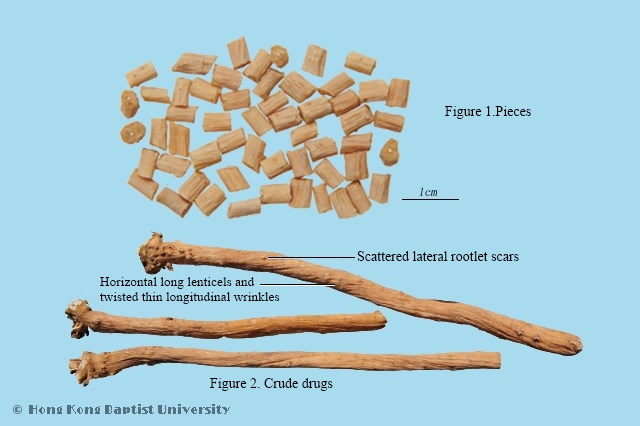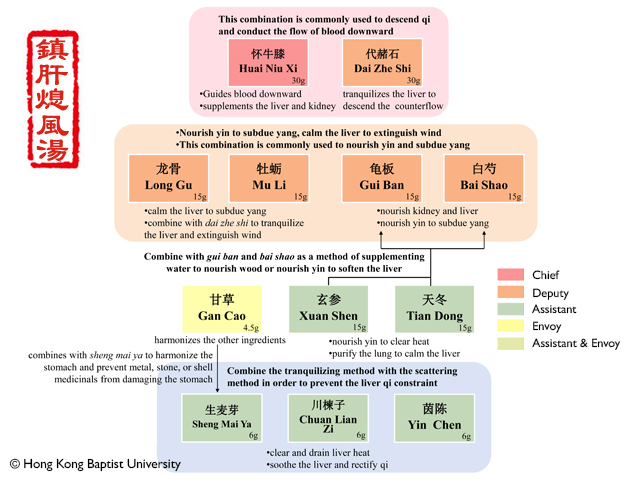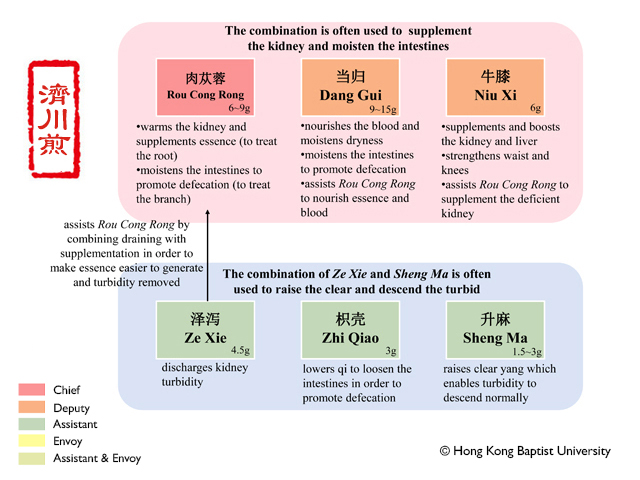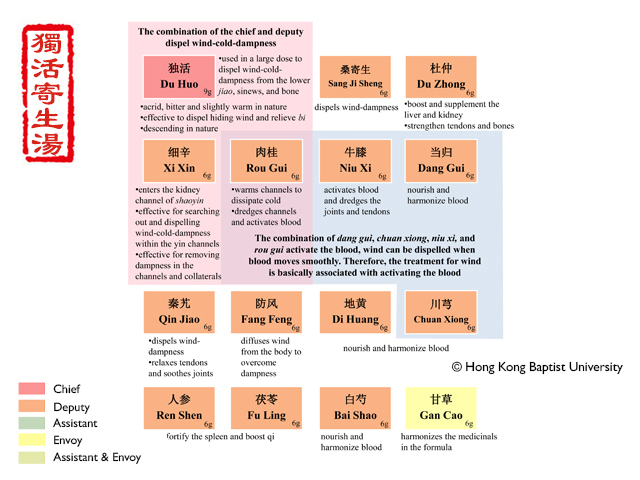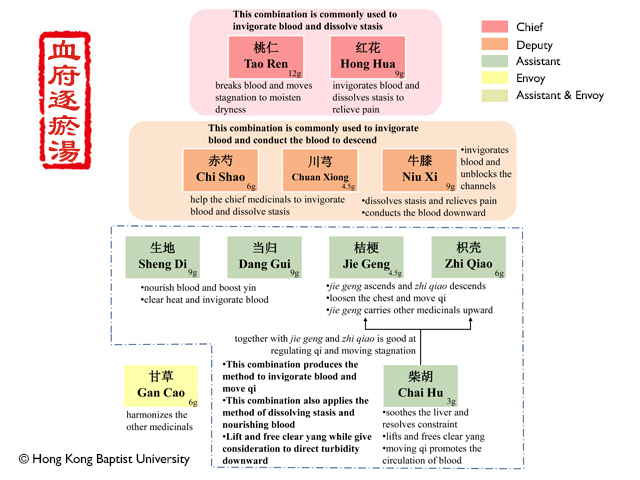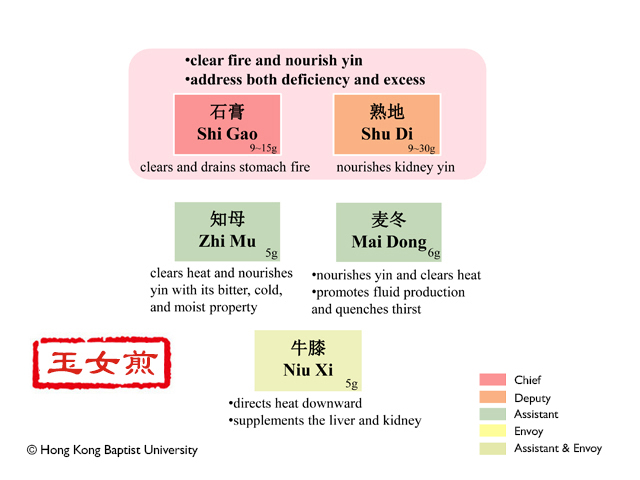Blood Stasis-Expelling Decoction
Action:Invigorates blood, dissolves stasis, and moves qi to relieve pain.
Indication:Xue Fu Zhu Yu Tang is indicated for blood stasis in the chest. Symptoms include chest pain, headache, and chronic stabbing pain at a fixed location, continual hiccups or choking when drinking water, nausea, internal heat, dizziness, severe palpitations, insomnia, dreaminess, impatience, irascibility, tidal fever at night, dark lips or eyes, a dark red tongue with ecchymosis or purple spots, and a choppy or wiry, tight pulse.
